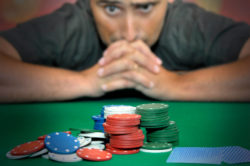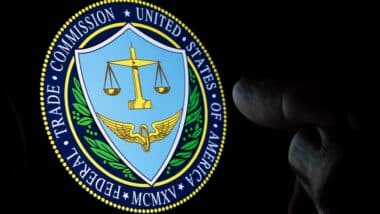 A consumer recently filed the latest in a series of Abilify gambling addiction lawsuits, alleging that the schizophrenia drug can cause compulsive behaviors including gambling and shopping.
A consumer recently filed the latest in a series of Abilify gambling addiction lawsuits, alleging that the schizophrenia drug can cause compulsive behaviors including gambling and shopping.
Plaintiff Tresa J. recently filed the most recent in a series of Abilify gambling addiction lawsuits against Bristol-Myers Squibb and Otsuka, alleging that the drug can cause compulsive behavior.
Tresa says she ingested Abilify as prescribed by her doctor and allegedly experienced side effects including compulsive gambling. These compulsive behaviors allegedly caused her emotional and financial damage, which she claims she was never warned about.
As a result of her alleged damages, Tresa has become the latest of many individuals to file gambling addiction lawsuits blaming Abilify for compulsive behavior.
Abilify is an antipsychotic drug prescribed for the treatment of depression, bipolar disorder, and schizophrenia. The drug was approved by the U.S. Food and Drug Administration (FDA) in 2002 and began being distributed shortly after. Abilify has been widely successful across the globe, the Tresa argues that the monetary success has been at the expense of patients like her.
After the drug’s release, studies allegedly revealed that Abilify was linked to compulsive behavior. The drug works to treat mental illness by manipulating dopamine receptors in the brain. Because dopamine plays a large role in the brain’s reward system, it is thought that this mechanism may link Abilify to compulsive behaviors.
As early as Oct. 2012, the European Medicines Agency required the drug manufacturers to include a warning for pathological gambling. The agency required disclosure of post-marketing reports of pathological gambling as well as the side effect’s inclusion in “undesirable effects” reports.
Canadian regulators followed suit in Nov. 2015 when they concluded that there is “a link between the use of aripiprazole and a possible risk of pathological gambling or hypersexuality.” A warning statement was issued to patients and physicians and included in prescribing information.
Despite the early actions of international regulatory bodies, U.S. labeling was allegedly slower to change. Until January 2016, Abilify labeling allegedly did not contain any mention of compulsive behaviors with the drug such as gambling. The labeling was allegedly only changed at the behest of the FDA, rather than voluntarily by the defendants.
Many gambling addiction lawsuits argue that drug manufacturers should have included label warnings for compulsive behavior as soon as they knew about it instead of after the actions of regulatory agencies. These gambling addiction lawsuits also claim that the defendants purposefully did not warn about gambling side effects in order to increase U.S. sales.
“Defendants wrongfully and unjustly profited at the expense of patient safety and full disclosure to the medical community by failing to include language about gambling in the United States labeling and by failing to otherwise warn the public and the medical community about Abilify’s association with gambling—despite opportunities and a duty to do so,” gambling addiction lawsuits claim. “As a result, Defendants have made significantly more revenue from Abilify sales in the United States compared to Europe.”
Other consumers have filed numerous Abilify gambling addiction lawsuits claiming that the damaging side effect was never explained to her. These gambling addiction lawsuits seek to hold drug manufacturers accountable for not warning patients and physicians of all the risks associated with Abilify.
In her lawsuit, Tresa seeks compensatory damages, statutory damages, punitive damages, court costs, and attorneys’ fees.
The Abilify Gambling Lawsuit is Case No. 1:18-cv-05062 in the United States District Court for the Northern District of Illinois.
In general, Rexulti and Abilify lawsuits are filed individually by each plaintiff and are not class actions.
Do YOU have a legal claim? Fill out the form on this page now for a free, immediate, and confidential case evaluation. The attorneys who work with Top Class Actions will contact you if you qualify to let you know if an individual Rexulti or Abilify lawsuit or class action lawsuit is best for you. Hurry — statutes of limitations may apply.
ATTORNEY ADVERTISING
Top Class Actions is a Proud Member of the American Bar Association
LEGAL INFORMATION IS NOT LEGAL ADVICE
Top Class Actions Legal Statement
©2008 – 2026 Top Class Actions® LLC
Various Trademarks held by their respective owners
This website is not intended for viewing or usage by European Union citizens.
Get Help – It’s Free
Join a Free Rexulti and Abilify Lawsuit Investigation
If you or a loved one were injured from Abilify side effects such as a gambling addiction, shopping addiction or other compulsive behavior, you may have a legal claim. See if you qualify to pursue compensation and join a free Abilify lawsuit investigation by submitting your information for a free case evaluation.
An attorney will contact you if you qualify to discuss the details of your potential case.
PLEASE NOTE: If you want to participate in this investigation, it is imperative that you reply to the law firm if they call or email you. Failing to do so may result in you not getting signed up as a client or getting you dropped as a client.
Oops! We could not locate your form.













I have been shopping a lot, and I do not need those things I bought.
Those prescribers are making money off of me and others like me.
I believe it is keeping us down where they want me or us to be.
Abilify is not a miracle work at all. Doctors got people believe such mess.